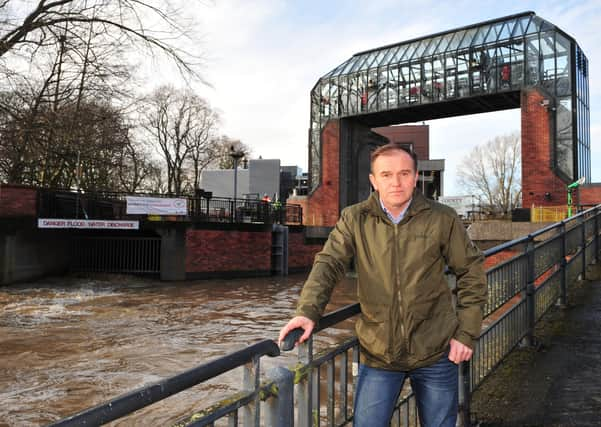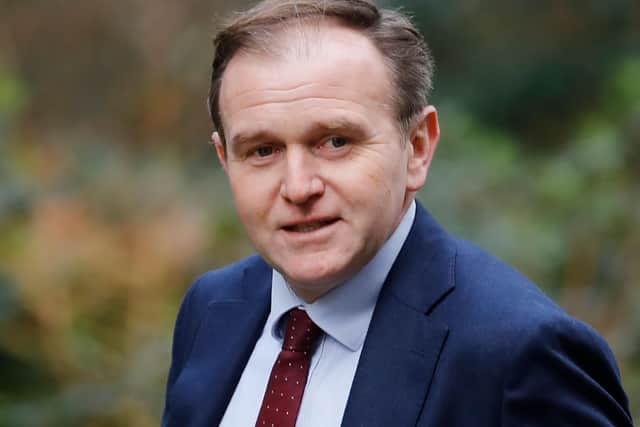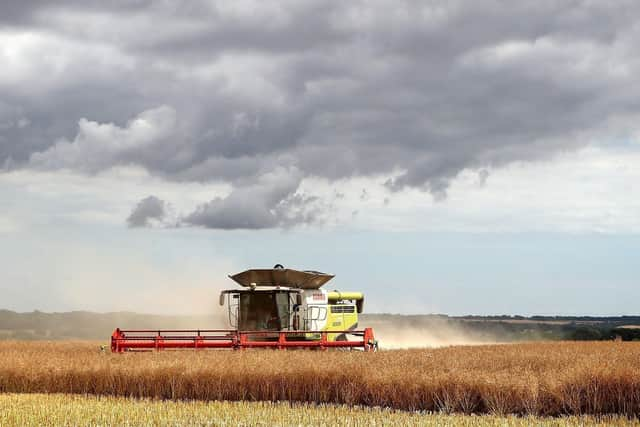How Brexit will enhance our natural environment – George Eustice


Studies across the spectrum, from health to financial risk, remind us that it is in our best interests to look after nature. Starting this autumn, we’ll be investing a further £4m in a two-year pilot to bring green prescribing to four urban and rural areas that have been hit the hardest by coronavirus and then we want to scale that project up.
When we destroy nature, we undermine our very foundations. In our own country, nature has been in decline for decades. The last breeding populations of Kentish plovers were lost in 1928. Between 1932 and 1984, we lost 97 per cent of our species-rich grassland – and heathlands have fared little better.
Advertisement
Hide AdAdvertisement
Hide AdFive species of butterfly have become extinct in the last 150 years. And our farmland bird indicator stands at less than half its value of 1970 – following a precipitous decline during the 1980s and 90s, and further losses since. This Government’s pledge is not only to stem the tide of loss, but to turn it around – to leave the environment in a better state than we found it.


In a few months’ time the Brexit transition period will come to an end, and the UK will be free to chart a new course. It is an important moment for policy makers and nowhere more so than in our approach to the environment.
As a country we have opted for the freedom to act and to decide our own environment policies in future. But with that freedom comes new responsibilities. It will no longer be the case that the UK can register a position as an outlier around the table during the development of a particular EU dossier, safe in the knowledge that a QMV voting system will always drive out something more nuanced.
Instead we must learn to temper our own approach. And we will not be able to hide behind EU law when there are difficult decisions to make or indeed blame the EU when things don’t work. Instead we must level with people about difficult decisions and take responsibility for delivering the change that is required.
Advertisement
Hide AdAdvertisement
Hide AdTackling environmental challenges requires a long-term approach and political commitment to that journey – even when the political cycle can be short term.


So we will shortly be publishing a paper that sets out our approach to setting long-term targets on biodiversity, waste, water, and air quality through the new Environment Bill, so they are established in time by October 2022.
We will shortly be launching the appointment campaign for the first Chair of the Office for Environmental Protection so that they will be in place to lead a new Public Body in 2021 – to scrutinise and assess progress towards these targets.
When it comes to our new approach to the environment, we must have an appreciation of what worked in the EU in the past, and also what didn’t work. Where there were approaches inside the EU that helped our environment, we should recognise these and be willing to borrow features from them.
Advertisement
Hide AdAdvertisement
Hide AdBut there is no point leaving the EU to keep everything the same. The old model has not stopped the decline in our natural world.
And, of course, leaving the EU table does not mean retreating from our role in the world. In fact it means we should redouble our efforts globally.
Long before we joined the EU, the UK was a driving force in establishing other international conventions to help our natural environment.
Next year we will host COP26 where we will be seeking to secure international action on climate change and biodiversity loss which will include emphasising the role of nature-based solutions in that global endeavour – such as our work to tackle illegal deforestation and promote sustainable supply chains.
Advertisement
Hide AdAdvertisement
Hide AdSo while the environmental legislation we currently have is often credited to flagship EU directives like the Habitats Directive or the Birds Directive, these directives themselves were often principally about implementing at an EU level things that had already been agreed internationally through other international conventions like the Bern Convention.
International conventions that the UK was always part of, will remain part of and where we will continue to drive international consensus for change and progress.
George Eustice is the Environment Secretary. He delivered a policy speech this week – this is an edited version.
Editor’s note: first and foremost - and rarely have I written down these words with more sincerity - I hope this finds you well.
Advertisement
Hide AdAdvertisement
Hide AdAlmost certainly you are here because you value the quality and the integrity of the journalism produced by The Yorkshire Post’s journalists - almost all of which live alongside you in Yorkshire, spending the wages they earn with Yorkshire businesses - who last year took this title to the industry watchdog’s Most Trusted Newspaper in Britain accolade.
And that is why I must make an urgent request of you: as advertising revenue declines, your support becomes evermore crucial to the maintenance of the journalistic standards expected of The Yorkshire Post. If you can, safely, please buy a paper or take up a subscription. We want to continue to make you proud of Yorkshire’s National Newspaper but we are going to need your help.
Postal subscription copies can be ordered by calling 0330 4030066 or by emailing [email protected]. Vouchers, to be exchanged at retail sales outlets - our newsagents need you, too - can be subscribed to by contacting subscriptions on 0330 1235950 or by visiting www.localsubsplus.co.uk where you should select The Yorkshire Post from the list of titles available.
If you want to help right now, download our tablet app from the App / Play Stores. Every contribution you make helps to provide this county with the best regional journalism in the country.
Sincerely. Thank you.
James Mitchinson
Editor
Comment Guidelines
National World encourages reader discussion on our stories. User feedback, insights and back-and-forth exchanges add a rich layer of context to reporting. Please review our Community Guidelines before commenting.